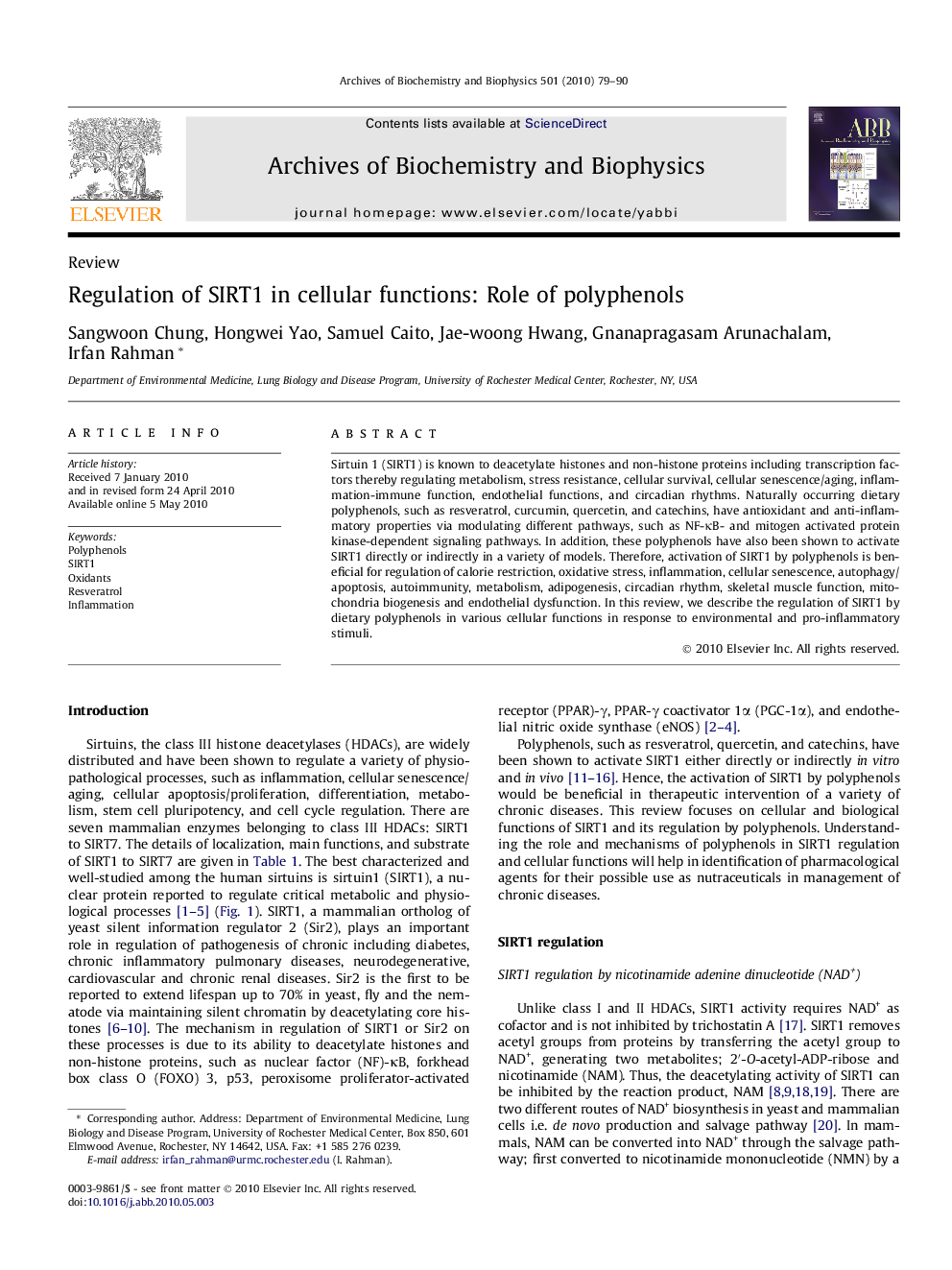| Article ID | Journal | Published Year | Pages | File Type |
|---|---|---|---|---|
| 1926001 | Archives of Biochemistry and Biophysics | 2010 | 12 Pages |
Sirtuin 1 (SIRT1) is known to deacetylate histones and non-histone proteins including transcription factors thereby regulating metabolism, stress resistance, cellular survival, cellular senescence/aging, inflammation-immune function, endothelial functions, and circadian rhythms. Naturally occurring dietary polyphenols, such as resveratrol, curcumin, quercetin, and catechins, have antioxidant and anti-inflammatory properties via modulating different pathways, such as NF-κB- and mitogen activated protein kinase-dependent signaling pathways. In addition, these polyphenols have also been shown to activate SIRT1 directly or indirectly in a variety of models. Therefore, activation of SIRT1 by polyphenols is beneficial for regulation of calorie restriction, oxidative stress, inflammation, cellular senescence, autophagy/apoptosis, autoimmunity, metabolism, adipogenesis, circadian rhythm, skeletal muscle function, mitochondria biogenesis and endothelial dysfunction. In this review, we describe the regulation of SIRT1 by dietary polyphenols in various cellular functions in response to environmental and pro-inflammatory stimuli.
